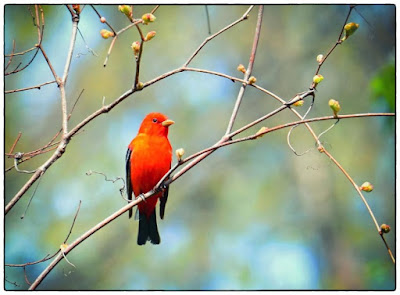Competition and Evolution
Maybe the main reason the owlhoots at the Darwin Ranch cheat at cards and at science is because they believe their own philosophies: competition, survival of the fittest, and that sort of thing. The strong survive, one critter gets to eat, the other one starves, the survivors propagate the species. People believe these things because they trust what "scientists say" — even without evidence, and even when scientists are wrong.
There are times when we see animals fighting over what they consider their stash, even though there's enough food available for everybody. But there are other times when they will help each other out. Sometimes it's a one-on-one thing, gotta watch out for your own kind and so forth, but there are also baffling instances of symbiosis, inter-species assistance where both parties benefit. Such things refute Darwin's idea, and show that the Creator has design plans that are beyond our proud but limited minds. Even sinful humans have love and compassion, and will help each other out, building hospitals, schools, providing missions and relief efforts, and so on. Doesn't exactly fit "survival of the fittest" does it?
 |
| Scarlet Tanager image credit: Morguefile / AcrylicArtist (Rodney Campbell) |
Survival of the fittest has been a dominating tenet of Darwinian evolution. But a trio of colorful birds provides evidence that Darwin got it wrong when he suggested competition is the fundamental force that shapes nature. How do these birds dispute Darwin? By eating!To finish eating — I mean, reading — click on "Tree-Snacking Tanagers Undermine Darwin".
Three varieties of Trinidad tanagers share bugs on the same trees as they silently undermine natural selection survivalism. Without confrontations over resources, 1) speckled tanagers pick off bugs from tree leaves, 2) bay-headed tanagers prefer to eat bugs from under large branches, and 3) turquoise tanagers snap up bugs from twigs.
Illustrating what ecologists call noncompetitive niche positioning, this tanager trio avoids antagonistic competition. To appreciate how this peaceful prey sharing upsets the presumptions of Charles Darwin, Thomas Huxley, and their modern ilk, it’s helpful to review why Darwin’s ideas were welcomed so fervently by academics who scoffed at Genesis.